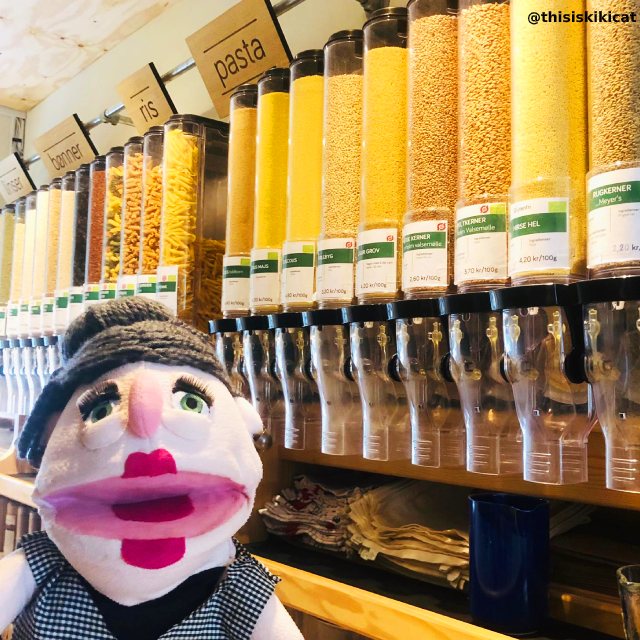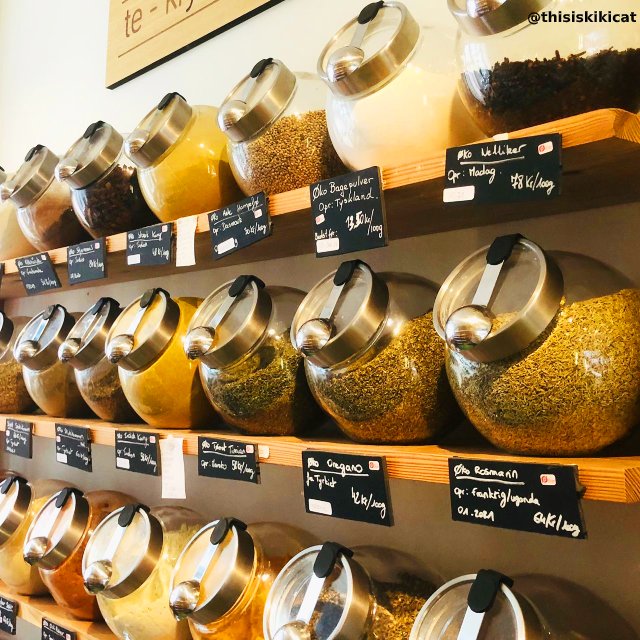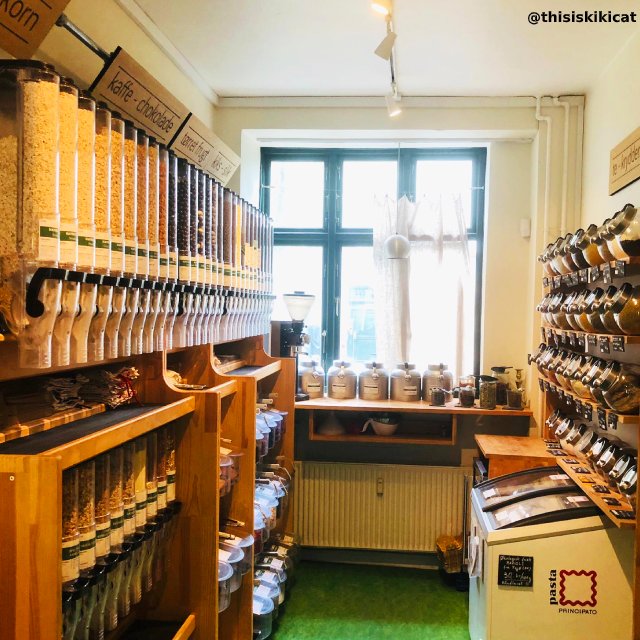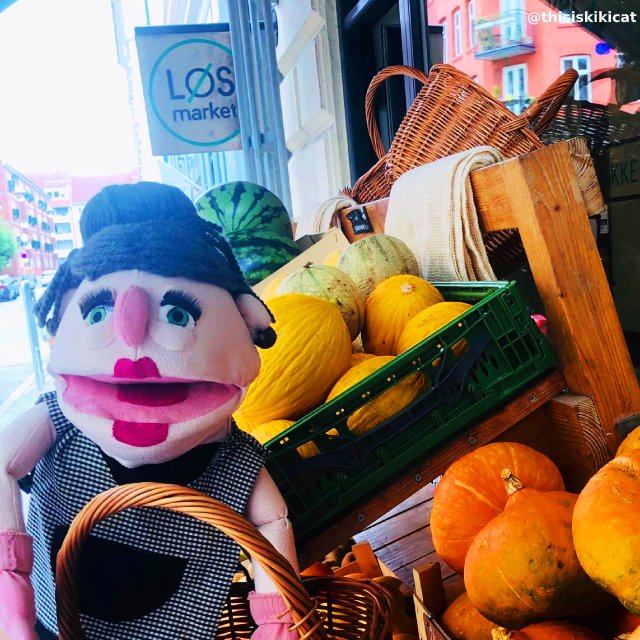Løs Market, organic and packaging-free grocery stores

♻️🛒 Grandma Sita always brings her own containers at LØS market, organic and packaging-free grocery stores in Denmark. Today, she gets legumes and cereals. This sustainable approach store showed a great variety of how consumers can indulge themselves in a zero-waste concept.
➡️ LØS Market are local organic zero/less waste grocery stores centrally located in Copenhagen. At LØS Market, BYO = bring your own bag, bottle or container is promoted by discounts and you can order groceries online and have them delivered by bike directly to your door, all dry goods are in organic paper bags and encourage you to recycle them at home.
🤓 Read more about it 👉 loes-market.dk
- The Zero-waste concept
At LØS market, you get 100% organic ingredients and your money works for sustainability and minimal packaging. A zero-waste, or package-free supermarket, is a place where everything is sold without packaging. This is done to reduce waste and especially unnecessary plastic waste. Customers bring their own containers, fill them up with the products and then pay based on weight or volume.
How does it work? It is quite simple. You bring your own selection of containers – alternatively, they have some jars, bottles, and fabric bags there – and simply fill them up with what your heart desires. Here are the four easy steps:
1. Weigh your container and print the little label that states the empty weight – so it can be subtracted at the register.
2. Fill your container up with what you like – e.g. oats, muesli, or wine.
3. Repeat until you have all you need.
4. Go to the register and pay!
However, you cannot take your own bottles, but there are 250ml, 500ml and 700ml bottles available for a deposit – pay the first time and then exchange for a clean bottle next time around.
- What can be bought at LØS market?
The focus is on dry goods and pantry staples, such as pasta, rice and other grains, oats, different types of flours, sugar, nuts and seeds, muesli and breakfast cereals, coffee, and tea. There are snacks like cookie, also vegan, dried fruits, gummy bears etc.
You can also find tons of different spices. In another room, is space for liquid products: oils and vinegar, wines, and honey. There is a selection of seasonal vegetables and fruits available as well, and a separate section with soap bars and cleaning supplies. All products are 100% organic.
📷 and 🖋️ by @thisiskikicat
- DID YOU KNOW…
Plastics are a wide range of synthetic or semi-synthetic organic compounds that are malleable and so can be molded into solid objects. The success and dominance of plastics starting in the early 20th century led to environmental concerns regarding its slow decomposition rate after being discarded as trash due to its composition of large molecules. Toward the end of the century, one approach to this problem was met with wide efforts toward recycling.
📢 The presence of plastics, particularly microplastics, within the food chain is increasing. In the 1960s microplastics were observed in the guts of seabirds, and since then have been found in increasing concentrations. The long-term effects of plastic in the food chain are poorly understood. In 2009, it was estimated that 10% of modern waste was plastic, although estimates vary according to region. Meanwhile, 50–80% of debris in marine areas is plastic.There will (predicted) be more plastic in the oceans than fish by 2050.
Source: Wikipedia




